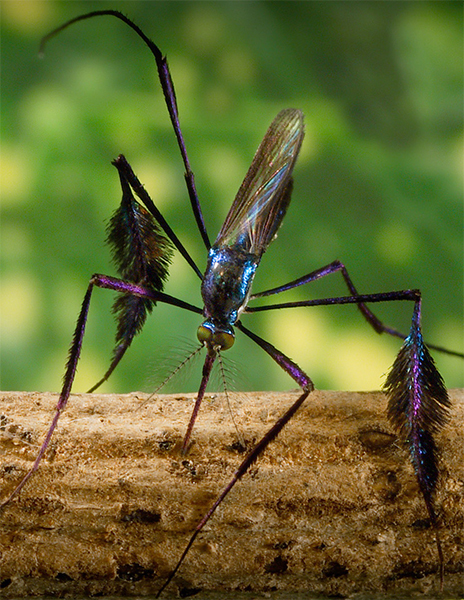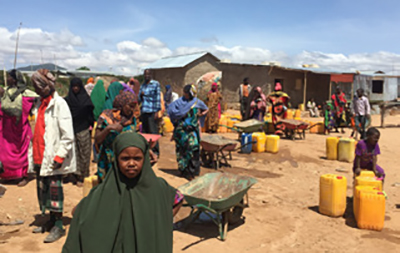Fighting Global Outbreaks
Stopping Ebola’s Spread In Democratic Republic of the Congo
On May 8, 2018, the Ministry of Health of the Democratic Republic of the Congo (DRC) reported two people infected with Ebola virus in the Equateur Province. CDC assisted the DRC government and local and international partners as they launched a response to the outbreak. CDC and partners used lessons learned from previous response efforts to quickly bring the outbreak under control. On July 25, the World Health Organization declared an end to the outbreak, which had sickened 54 people, 33 of whom died.
Just a week later, the DRC Ministry of Health reported another Ebola outbreak in North Kivu province. Serious security concerns in the area make this second outbreak response particularly challenging. The outbreak has continued to spread and, in December 2018, became the second largest Ebola outbreak in history. CDC is working closely with the DRC government, the World Health Organization, and other partners to bring the outbreak under control by supporting epidemiology, laboratory diagnostics, infection prevention and control, border protection, emergency operations, risk communication, and vaccination strategy activities. In 2018, CDC deployed more than 90 subject matter experts to DRC and neighboring countries to coordinate activities and provide technical guidance to help the region strengthen its preparedness to respond to Ebola.

Preventing Yellow Fever Around The World
Yellow fever is spread by infected mosquitoes and can cause serious illness or death in people who have not been vaccinated. With continual outbreaks in Africa and South America, vaccination campaigns are critical to educate the public on yellow fever and the importance of the vaccine.
In Brazil, more than 1,370 yellow fever infections and over 480 deaths were reported from July 2017 through June 2018. In response, CDC issued a travel health notice in March 2018 to alert travelers and recommend that those who have never been vaccinated against yellow fever avoid traveling to the areas of Brazil where yellow fever is a risk. CDC conducted a coordinated multi-media effort to inform and encourage healthcare providers and travelers to plan ahead because of the limited availability of yellow fever vaccine in the United States.
Accurate diagnosis is also important, and in 2018, CDC launched an international study of a yellow fever diagnostic kit. Nine countries across Africa and South America are testing the kit to see how it performs and how it can be improved.
Working With Ministries of Health In Africa To End Cholera
Cholera is a deadly disease spread by drinking water or eating food contaminated with cholera bacteria that can cause watery diarrhea. CDC helped Ministries of Health in Malawi, Zambia, and Zimbabwe respond to outbreaks of cholera, including in-country technical support for surveillance and laboratory diagnostics, case management, evaluation and monitoring of water quality, investigations of cholera mortality, and cholera vaccination. As part of the Ending Cholera initiative by the Global Task Force for Cholera Control, CDC has helped Kenya, Tanzania, and Zambia to develop and launch their plans to end cholera by 2030. To prevent cholera outbreaks, CDC is committed to identifying cholera hotspots, rapidly responding to outbreaks, providing targeted training for cholera surveillance and detection, and identifying unsafe water, sanitation and hygiene conditions.

Global Partnerships Improve Water, Sanitation, and Hygiene In Rural Healthcare Facilities
In many countries, rural healthcare facilities with unsafe water and poor sanitation can be a deadly reality. The 2014-2015 Ebola outbreak in West Africa highlighted the crisis faced by healthcare workers and patients, when a lack of safe water and sanitation became a major hurdle in treating Ebola and saving lives. Since then, public health workers around the world have stepped up efforts to assess their water and sanitation infrastructures and develop national action plans. They are also working to make improvements needed to provide rural healthcare facilities with access to safe water, adequate sanitation, and education about hygiene to prevent infectious diseases.

In 2018, CDC experts worked with partners and ministries of health in more than 300 rural healthcare facilities in five countries—Mali, Uganda, Tanzania, Ghana, and Ethiopia—to improve water, sanitation and hygiene (WASH) conditions. Experts assessed facilities’ water, sanitation, hygiene, and waste management infrastructures; evaluated healthcare workers’ knowledge about WASH; studied their handwashing hygiene practices; and learned what providers and patients thought about existing WASH conditions. CDC and partners then helped put into place a plan to improve healthcare conditions by developing materials to strengthen healthcare workers’ knowledge of how to improve WASH practices and deliver WASH messages.
Helping Pakistan Fight Drug-Resistant Typhoid Fever
Without treatment, 30% of people infected with typhoid fever (Salmonella Typhi) will die. But when the infectious strain is drug-resistant, the percentage of people who die is much higher. Such was the case in late 2016, when health officials in the city of Hyderabad, Pakistan, reported an outbreak of typhoid fever that was resistant to most antibiotics—also known as extensively drug-resistant, or XDR typhoid fever. By 2017, the XDR outbreak had spread to Pakistan’s largest city, Karachi. Public health authorities in Pakistan asked CDC to help with surveillance, laboratory testing, and control of the XDR outbreak. CDC’s typhoid experts consulted with the National Institute of Health in Pakistan, Aga Khan University investigators, the CDC Country Office, and the USAID mission. In October 2018, they met with authorities in Islamabad and Karachi and together they were able to take steps to improve surveillance, diagnosis, and control of XDR typhoid fever in Pakistan.